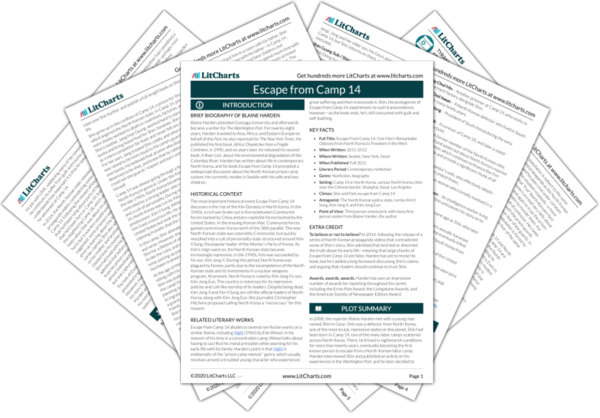Few people know that the Kim dynasty supports itself largely through fraud: core families file insurance claims for property or business damages, and insurance companies around the world are forced to send money back to the Kims. It is startling to consider that major Western companies unknowingly contribute to the Kim dynasty’s power (especially considering that the Kims have demonized the Western world in general and the U.S. in particular). It’s even odder that some of these companies may be unaware that North Korea is a totalitarian state—and perhaps by publishing his book, Harden can enlighten the public and theoretically take some money out of the Kims’ pockets.
